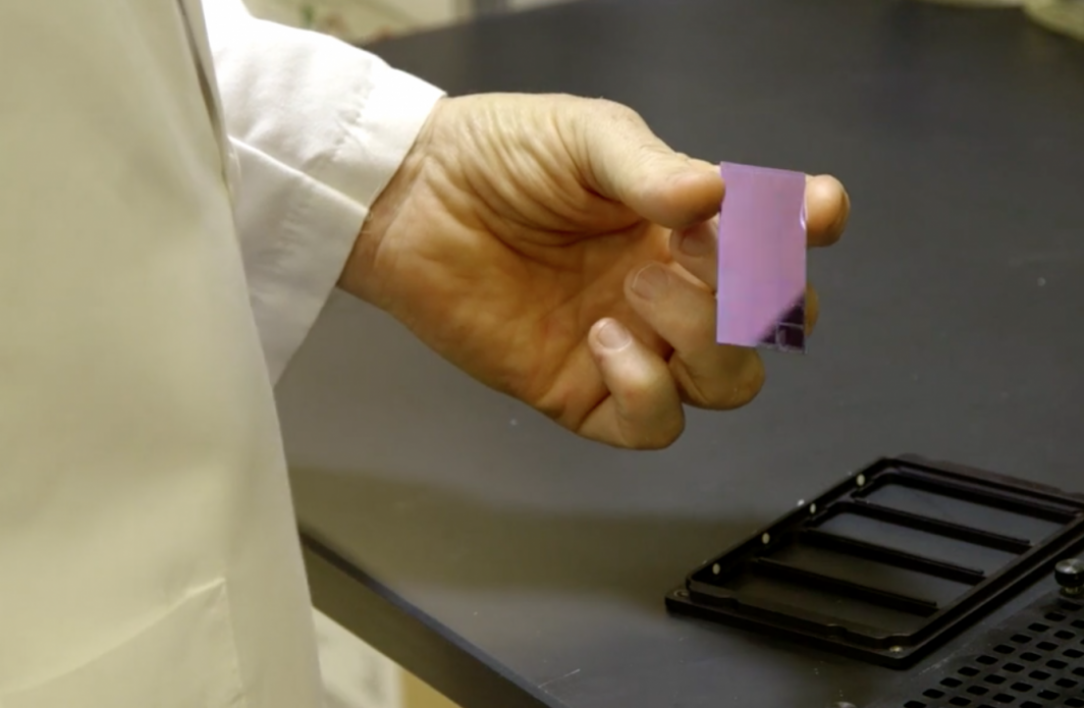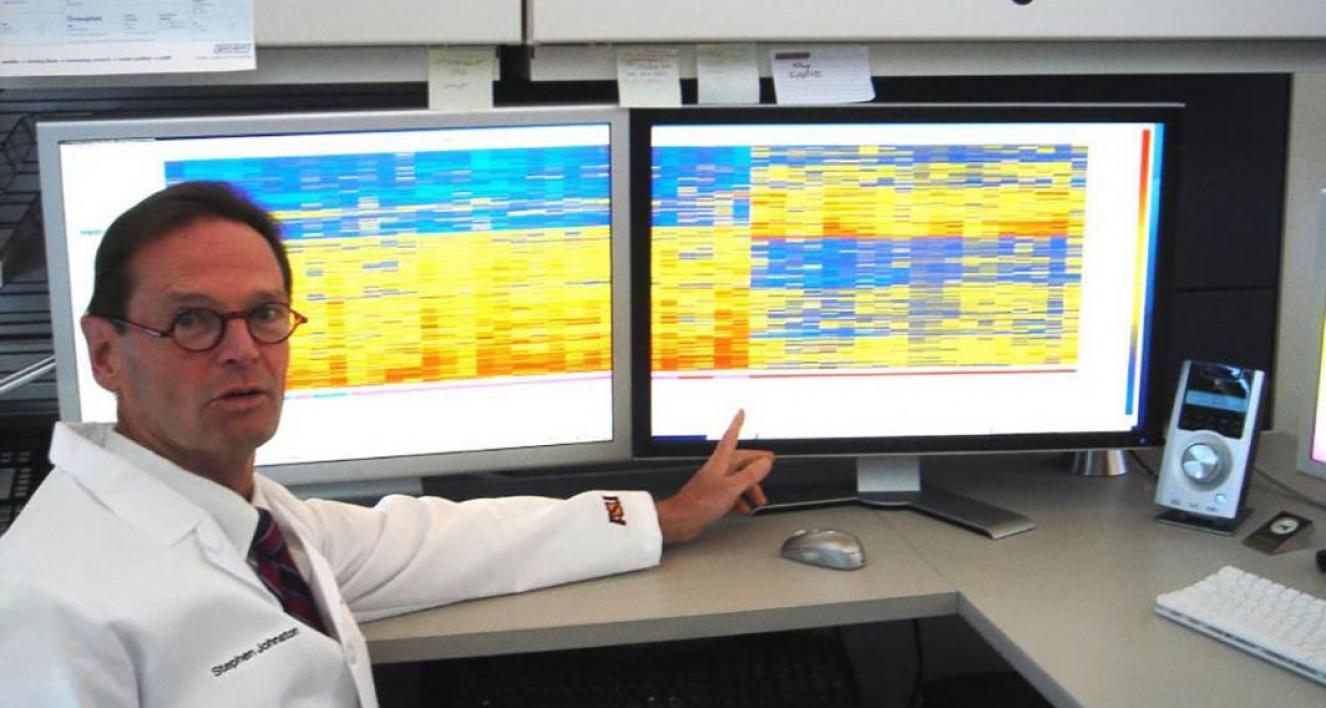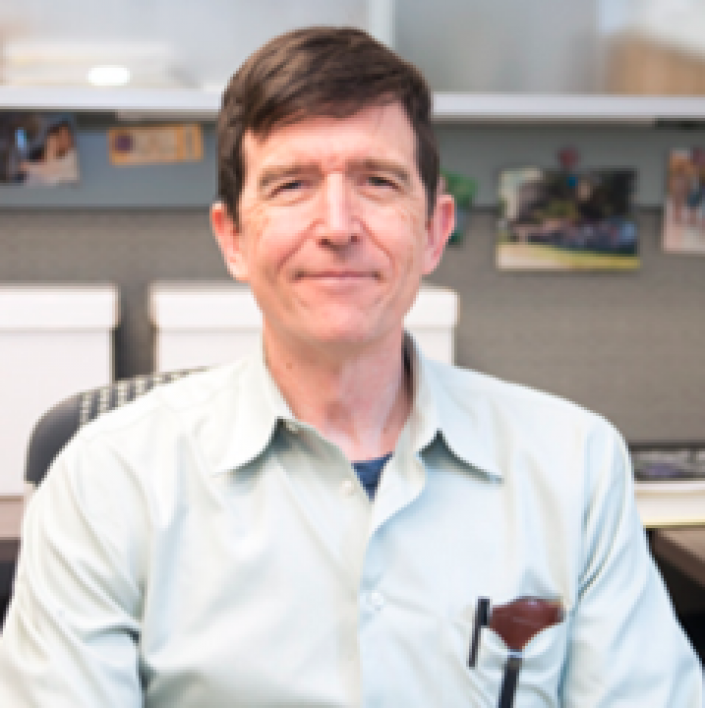What if your smartphone could tell you that a potential disease or illness is lurking in your immune system? What if instead of contracting diabetes, you were able to stop it before it compromised your health — maybe even before you or your physician see any outward signs? This is the driving idea behind an international group of scientists, inventors and entrepreneurs that will soon change the way we understand our health.
An Arizona State University discovery is central to the launch of this invention that “will give people a deeper understanding of the medical, behavioral and environmental factors that can accelerate disease or optimize health,” according to a recent announcement by Jun Wang (pictured above), iCarbonX founder and creator of the Digital Life Alliance, based in Shenzhen, China.
ImmunoSignature, the diagnostic platform developed by ASU Biodesign Institute research scientists Stephen Albert Johnston and Neal Woodbury, was the final piece needed to complete this potentially revolutionary approach to health care. With a single drop of blood, this diagnostic powerhouse can detect diseases that involve an immune response (autoimmune, cancer, infectious disease, metabolic and neurologic diseases).
“My goal has always been to detect illness before it begins,” said Johnston, who is also a professor in the School of Life Sciences. “In other words, I would like to see the concept of the patient become extinct. That is the only way we can truly stop the relentless increases in the cost of health care. With this new alliance, we are closer than ever.”
Johnston predicts that the technology to track and report disease biomarkers directly to patients could be available within five years.
Backed by a $400 million investment, the Digital Life Alliance, which includes HealthTell as one of seven core companies, will “merge genetic, biological and patient-generated data with sequencing and AI (artificial intelligence) technology to instantly detect meaningful signals about health, disease and aging, and deliver a personalized guide for living a healthy life,” according to Wang.
“Who could have imagined 10 years ago that with the right diagnostic, a single drop of blood could detect 50 different diseases?” said ASU President Michael Crow. “Scientists with expertise, imagination and boundless aspiration are who we recruit to Arizona, ASU and Biodesign. Today, we are being recognized as a powerhouse in the world of innovation and for generating use-inspired solutions. iCarbonX’s significant investment in technologies conceived at ASU is a real demonstration of what can happen when public and private enterprises bring their best minds together.”
It is estimated the U.S. alone spends $3.2 trillion for health care. Organizers say this new innovation to catch diseases early will result in not only in mammoth cost savings, but most importantly, will save lives and help eradicate the challenges faced by those who suffer from illness.
The Biodesign Institute represents the state’s largest single investment in research infrastructure in the history of Arizona. The Biodesign Institute launched in 2004 with $69 million from the state’s Technology and Research Innovation Fund.
According to Johnston, HealthTell’s high-density peptide array platform is the first real-time assessment that will be simple, inexpensive and comprehensive. The HealthTell technology, particularly when combined with data from the other Digital Life Alliance partners, has the potential to enable health monitoring using a single drop of blood that is analyzed on a regular basis. The route to this discovery has been published in Nature Communications and Proceedings of the National Academy of Sciences.
It turns out that some of the leading causes of death — both infectious and chronic diseases such as cancer — give rise to immune responses fairly early in the course of a disease. These snapshots of the immune system, called immunosignatures, provide an in-depth picture of a person’s health.
“The idea is to change medicine from post-symptomatic to pre-symptomatic. To do that, you have to monitor healthy people and figure out early what’s happening to them,” said Johnston, who directs the Biodesign Center for Innovations in Medicine at ASU’s Biodesign Institute. With our rapidly aging population and collaborative spirit, Johnston envisions Arizona as a possible “R&D proving ground,” where we can get ahead of disease and its costs.
Johnston has already successfully demonstrated the potential of immunosignature profiling for diagnosing people suffering from more than 50 different diseases, including diabetes, cancer and Alzheimer’s. In addition, the versatile technology could be used to safeguard the security of our nation’s blood supply or give early warning of a disease epidemic.
“We can only reach this audacious goal if we successfully integrate traditionally separate fields of expertise into one collaborative ecosystem,” Wang said. As former CEO of the Beijing Genomics Institute, Wang has built the world’s largest DNA sequencing hub, which aims to make genomic information a routine part of every medical checkup. His iCarbonX ecosystem includes HealthTell, SomaLogic, PatientsLikeMe, AOBiome, GALT, Imagu and Robustnique.
“We have developed a state-of-the-art core research facility here at Biodesign and welcome like-minded collaborators who will continue to push the envelope on what health and disease information we can glean from immunosignatures,” said Johnston. “Just recently, we were able to use the technology to successfully detect chronic fatigue syndrome, which even I didn’t think was possible. Now, there is a clinical trial underway in Norway based on these results.”
The new Digital Life Alliance will further the business development growth of HealthTell, which has its manufacturing hub located in Chandler, Arizona, as well as bring investments to spur further research advancements at ASU’s Biodesign Institute through the spinout agreements made possible by Arizona Technology Enterprises, the intellectual-property arm of ASU.
A 2014 report by the Seidman Research Institute reported that the Biodesign Institute has made an economic impact of $1.5 billion since it was established 10 years ago. Its annual direct economic impact is the highest for any single bioscience research institute in the state. Biodesign operations have created and supported more than 1,600 high‐paying jobs and generated $10.5 million in state and local tax revenues.
Top photo: Jun Wang, founder of digital biotechnology firm iCarbonX, showcases the Meum app that will use reams of health data, including technology first developed at ASU, to provide customized medical advice. Backed by a $400 million investment, the Digital Life Alliance, which includes ASU spinout HealthTell as one of seven core companies, will “merge genetic, biological and patient-generated data with sequencing and AI (artificial intelligence) technology to instantly detect meaningful signals about health, disease and aging, and deliver a personalized guide for living a healthy life,” Wang said.
More Science and technology

Compact X-ray laser lab aims to reveal deep secrets of life, matter and energy
X-rays allow us to view inside the human body to diagnose broken bones and other hidden problems. More recent X-ray advances are making it possible to see events at the scale of atoms and molecules,…

Apollo lunar samples enable ASU researcher to pinpoint moon’s crystallization timeline
A team of researchers, including Arizona State University geochemist Melanie Barboni, in collaboration with scientists from The University of Chicago, have made a new discovery about the history of…

NASA launches space telescope to chart the sky and millions of galaxies
California’s Vandenberg Space Force Base was the site for Tuesday’s 8:10 p.m. launch of the NASA SPHEREx mission aboard a SpaceX Falcon 9 rocket.The SPHEREx (Spectro-Photometer for the History of the…






